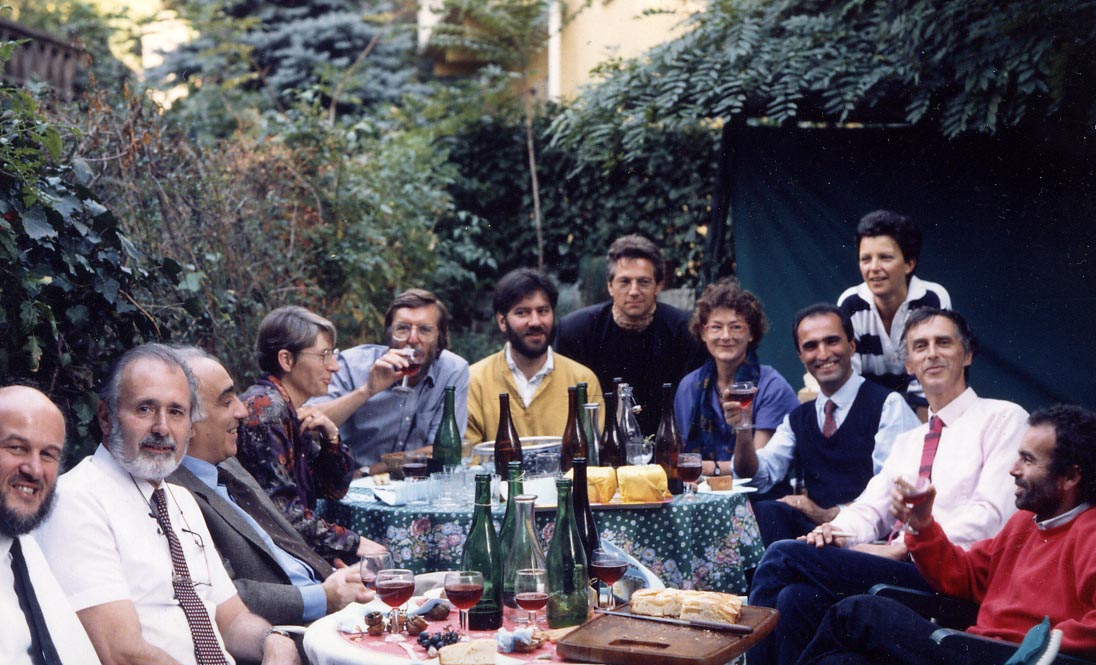Remembering Alex Fubini: A Journey Through Urbanism, Education, and Friendship
Umberto Janin Rivolin, on behalf of the Politecnico di Torino DIST friends
I met prof. Alessandro Fubini, Alex for all friends, in the 1980s when I was studying architecture at the Politecnico di Torino, Italy. He was already a well-respected academic and professional, deeply engaged in spatial planning and development research and practice. At that time, I was still shaping my own perspective on the discipline, and his teachings had a positive influence on me.
Later, during my master's at COREP, in Torino, our paths crossed again. I remember the precision with which he spoke about urban structures, the passion he poured into discussions on planning, and the way he effortlessly linked theoretical frameworks to real-world applications. At the time, he was working on the Land Use Plan (PRG) of Aosta, my native town, a project that reflected his deep understanding of urban complexities and his unwavering commitment to public interest.
Eventually, I had the privilege of working alongside him as his assistant for the variant of the Courmayeur - Val Ferret and Val Veny plan. It was during this period that I began to appreciate his methodological rigor, his ability to balance technical knowledge with visionary urban planning, and his tireless dedication to ensuring that development was always aligned with the needs of local communities.
By 1999, when I became a researcher at the Politecnico di Torino, our relationship evolved from that of teacher-student to colleagues. From then on, we collaborated extensively, particularly in coordinating the Spatial Planning and Local Development track within the PhD programme in Environment and Territory. This was more than just a professional partnership; it was an intellectual camaraderie that pushed me to refine my own ideas and approach to urban planning.
A Visionary Urbanist
Alex Fubini was not just an academic; he was a planner who deeply believed in the transformative power of urbanism. His contributions to research and spatial planning spanned across decades, overcoming local and international boundaries.
He played a significant role in European spatial planning research, working with institutions like the European Commission, the German Federal Government, and many universities across Europe, and his expertise in transport planning, urban governance, and sustainable mobility was recognized worldwide.
What set him apart was his ability to bridge academia and practice. He was not content with merely theorizing about urban planning; he actively engaged in shaping cities, developing methodologies, and influencing policies. From his early work on the territorial diffusion of development in Italy to his involvement in strategic plans for cities like Aosta, Bardonecchia, and Crescentino, his fingerprints are visible across numerous urban landscapes.
A Tireless Educator and researcher
Teaching was an integral part of Alex’s life. At the Politecnico di Torino, he shaped generations of students, instilling in them the importance of critical thinking in urban planning. His courses covered a vast array of topics, from urban design laboratories to transport and land-use planning, His contributions to research and territorial planning spanned decades, crossing local and international boundaries, and he was instrumental in shaping the curriculum of various master’s programmes.
He was also a firm believer in the internationalization of education, as witnessed by the active role he played in the activities of the Association of European Schools of Planning since its foundation. Among them, particularly relevant has been the coordination of the Thematic Network Project Improving Planning Education in Europe, established by AESOP in 1997 with the support of the European Commission Directorate General for Education and Culture. Similarly, as a visiting professor at institutions such as the Institut d'Urbanisme de Paris and Newcastle University, he fostered a global exchange of ideas, exposing students and scholars to diverse urban planning models.
Beyond his teaching, Alex’s research output was formidable. His work on urban mobility, land-use planning, and infrastructure development shaped policy discussions at both national and international levels. His involvement in research programmes under the European Union’s CIVITAS, Leonardo, and Interreg initiatives demonstrated his commitment to making cities more sustainable and equitable.
He understood that urban planning was not just about physical space but about people, governance, and long-term vision. His research on planning gain, evaluation tools, and the integration of environmental assessments into urban strategies showcased his nuanced understanding of urban development dynamics.
The Man Behind the Work and his Lasting Legacy
But Alex was more than his professional achievements. He had a sharp intellect, a quick wit, and a deep sense of curiosity that made conversations with him both stimulating and enjoyable. He could be demanding, but he was also generous with his time and knowledge.
One of the things I admired most about him was his ability to remain grounded despite his many accomplishments. He never lost sight of the human aspect of urban planning, always advocating for inclusive, well-thought-out policies that served communities rather than just political or economic interests. We shared many discussions, debates, and, occasionally, disagreements. But through it all, I always knew that his perspective was rooted in a deep, unshakable belief in the power of cities to improve people’s lives.
Looking back, I realize how much I owe to Alex – not just in terms of knowledge but in the way he helped shape my approach to urban planning. His passing is a tremendous loss, not just to those of us who knew him personally – first of all Josette, his life partner – but to the entire urban planning community. Yet, his work lives on. The cities he helped shape, the students he inspired, and the research he contributed to will continue to influence urban planning for years to come.
For me, and for the colleagues at the Interuniversity Department of Regional and Urban Studies and Planning of Politecnico di Torino, Alex Fubini will always be more than a former professor, colleague, and mentor. He was a guide, a collaborator, and, above all, a friend.


